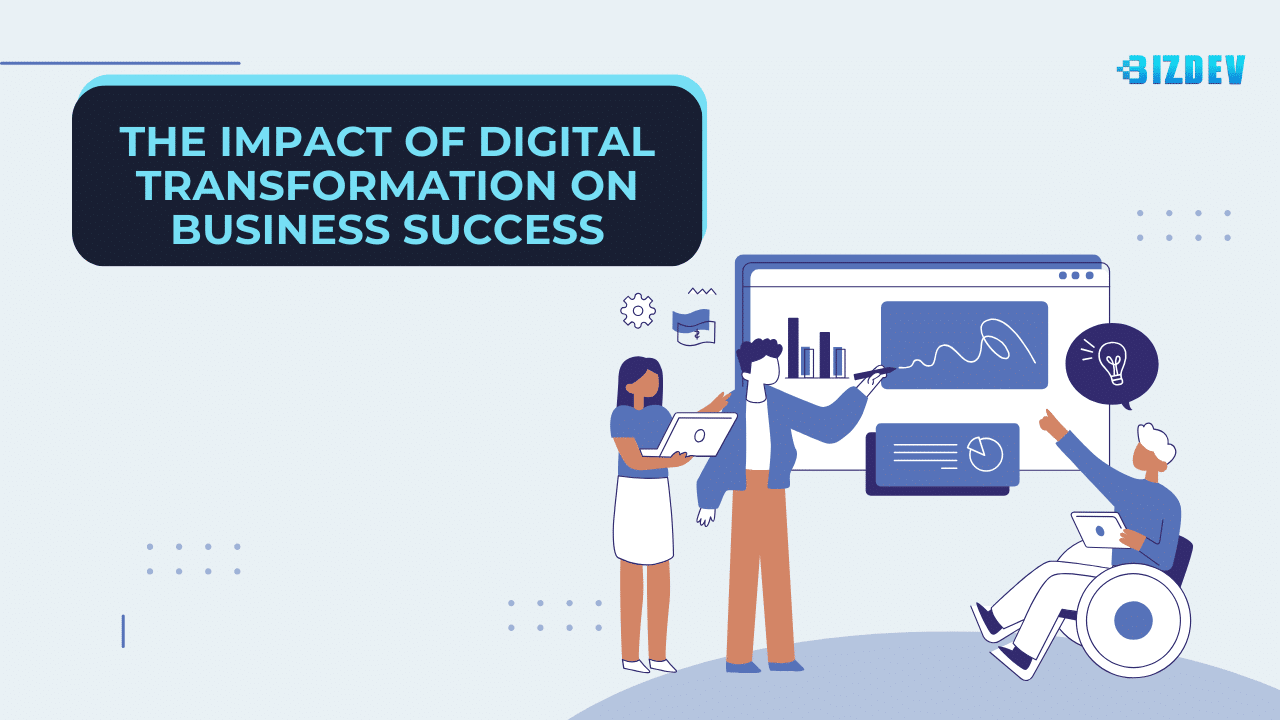Digital transformation has become more than just a buzzword—it’s a strategic imperative for businesses across industries. Let’s delve into what digital transformation truly means, how it can impact your business, and why it’s crucial for success.

Understanding Digital Transformation
At its core, digital transformation involves integrating digital technologies into all aspects of a business. It’s not just about adopting new tools; it’s about fundamentally changing how an organization operates and delivers value to customers. Here are key points to consider:
- Mindset Shift: Digital transformation requires a shift in mindset—one that embraces innovation, agility, and continuous improvement.
- Beyond Technology Adoption: It goes beyond ad-hoc digitization. Instead, it’s about using digital solutions to transform business practices, enhance customer experiences, and drive ROI.
- Necessity, Not Luxury: Flexera reports that digital transformation is a top priority for 74% of businesses. It’s no longer a luxury; it’s essential for survival and growth.
The Role of Digital Transformation
1. Competitive Advantage
- Streamlined Processes: Technology allows businesses to streamline processes, reduce costs, and respond swiftly to market changes.
- Data-Driven Insights: Analytics provide valuable patterns, trends, and customer preferences, helping companies stay ahead of competitors.
- Automation: Automating repetitive tasks frees up time for strategic activities, boosting productivity.
2. Elevating Customer Experience
- Personalization: Digital tools enable personalized customer experiences, enhancing satisfaction and loyalty.
- Omnichannel Engagement: Seamless interactions across channels create a cohesive brand experience.
- Real-Time Responsiveness: Technology allows businesses to address customer needs promptly.
3. New Opportunities for Growth
- Innovation: Digital transformation opens doors to new business models, revenue streams, and markets.
- Agility: Companies can adapt swiftly to changing customer demands and industry trends.
- Disruption and Evolution: Industries evolve, and digital transformation positions businesses to lead the change.
Building Blocks for Successful Digital Transformation
To embark on a successful digital transformation journey, consider these building blocks:
- Leadership Buy-In: Top-down support is crucial. Leaders must champion digital initiatives and foster a culture of innovation.
- Clear Strategy: Define objectives, prioritize investments, and align digital efforts with overall business goals.
- Talent and Skills: Invest in upskilling your workforce. Digital transformation requires skilled professionals.
- Agile Implementation: Start with pilot projects, learn from failures, and iterate. Be agile in execution.
- Security and Compliance: Safeguard data and ensure compliance with regulations.
Remember, digital transformation isn’t a destination—it’s an ongoing process. Embrace change, leverage technology, and propel your business toward success.
